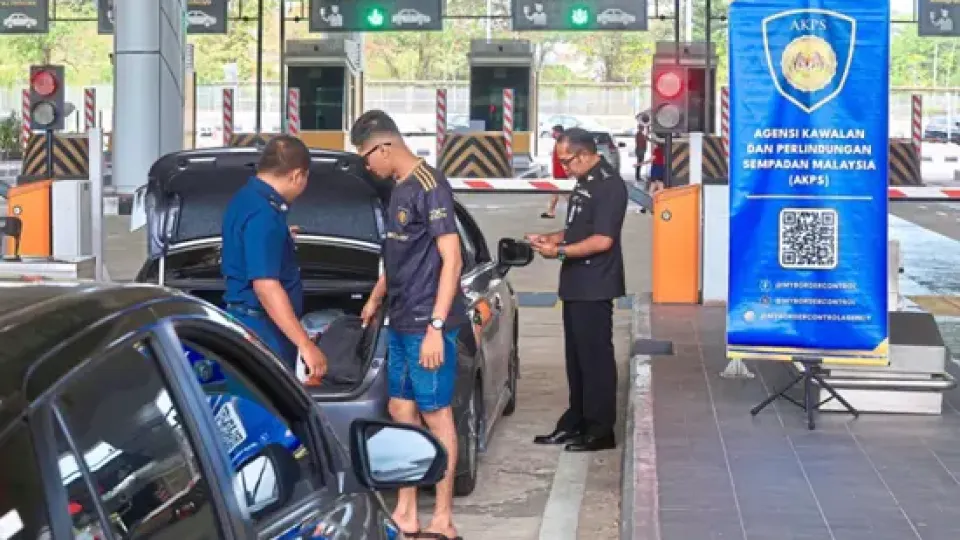February 3, 2025
JOHOR BARU – Travellers are hopeful that movement at the country’s international borders will become smoother and faster with the creation of the Malaysian Border Control and Protection Agency (AKPS).
They believe the new agency will significantly enhance efficiency at the two Customs, Immigration, and Quarantine (CIQ) complexes here.
Civil engineer R. Kalesz, 40, said Singapore has had a similar agency managing its borders for years.
“I think it is a good move. This may help ease traffic congestion for vehicles travelling between Johor Baru and Singapore.
ALSO READ:
- New border agency to ease travel
- ‘Info sharing between ministries and agencies is vital’
- Seamless transition at Bukit Kayu Hitam checkpoint
“However, I think it is important to ensure consistency and continuity when the initiatives are implemented under this new agency,” he said in an interview.
Kalesz, who commutes daily to Singapore via the Second Link by bus, hopes the agency will help manage congestion effectively.
“I hope that AKPS will be able to anticipate potential heavy traffic, especially during weekends and festive seasons, and manage it effectively.
“The new agency should take action against those who cut queue, as this often worsens traffic congestion,” he said.
Echoing a similar sentiment was technician Mohd Fauzan Hafizi Rosli, 37, who travels to Singapore by motorcycle daily through the Second Link.
“It is better to have just one agency coordinating and managing the border to avoid any overlap of duties,” he said.
Assistant sales manager Tan Sheau Hui, 50, who commutes by bus weekly, said that it was important for AKPS to work closely with its Singapore counterparts to improve the management of the shared border.
She said there is a crucial need for close collaboration between Malaysia and Singapore for AKPS to succeed.
The new agency should improve efficiency and pave the way for speedy immigration clearance.
Tan said Johor may see significant changes in the near future with the soon-to-be-completed Rapid Transit System Link (RTS Link), coupled with the increasingly robust trade and business activities.
“There will be more people travelling at a faster rate. We need to be prepared for this and must have a system that can accommodate it,” she said.

